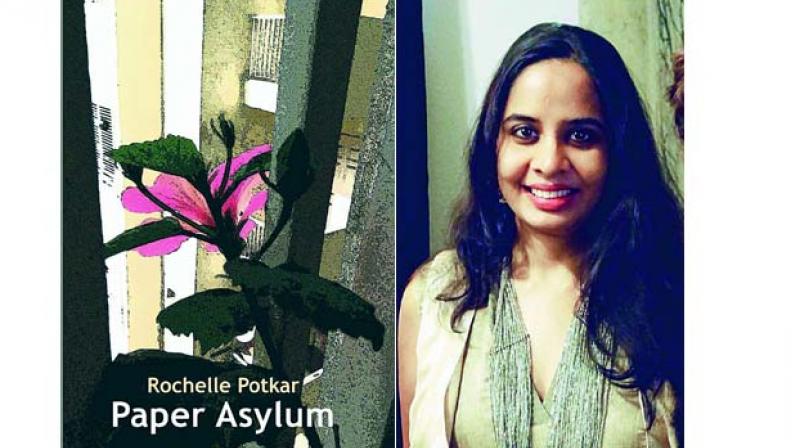High on Haibun
Rochelle Potkar's Paper Asylum is a refreshing reinvention of a unique Japanese form of writing.;

Despite being a 500-year-old sub-genre of poetry, haibun assiduously escapes the narrow confines of a definition. This prosimetric literary form with origins in Japan is based on the principles of honesty, conciseness, ingenuity, spontaneity, and a readiness to accept the world afresh. It combines prose and haikus and gives the writer an opportunity to tell a story through poetry.
The contrast of prose and poetry that haibun offers with delight is what comprises modern literary discourse. A strong inclination towards prose is characteristic of the writings of contemporary Indian poets.
Rochelle Potkar, the author of Paper Asylum, with her exceptional knack for thinking unconventional, has decided to reinvent this Japanese form of writing with a view of comprehending the world around her. Haibun allows her to simultaneously be a poet and a storyteller. Her anecdotes revolve around nostalgic remembrances with a sense of desire, agony, anxiety, and suspense.
“Haibun uses a story in a lyrical manner. It is not a very well-known form of writing, but is gaining popularity. When I started practising haikus, I was bewildered to see this intersection between story and poetry,” Rochelle says.
The beginning
Twelve years ago, Rochelle decided to quit a lucrative job to pen down her thoughts and explore where her writing would take her. Haibun is a form that she has been dabbling in for the past four years.
“There was something missing. My life was like a decorated box of no use. I began questioning myself and realised that I wanted to write stories. After writing many many stories, I started writing poetry, just a few years ago,” Rochelle says.
She initially pursued her passion as a hobby, but not anymore. “It’s become more than a hobby, I am addicted to writing. I didn’t even realise when it went from a small stream to a big river,” she says.
Learning is key
Moulding her thoughts into a book wasn’t the easiest of tasks. Rochelle spent countless hours online learning the nuances of how to form a Haiku. “I learnt the technique through online forums because it is a sublime form and not mainstream free verse. In fact, poetry in any language is a niche craft, and haiku even more so; there aren’t too many instructional programmes. I sought help online. Now, my book is inspiring a lot of publishers and writers,” she says.
Research is ongoing
I keep the windows of my soul open to all sorts of inspiration. I then collect, collate and use them in my writing. I am very interested in characters, I observe people and make note of the amusing things about them. When I write, those things automatically come up,” she says.
Two of the characters that Rochelle has created in her head, collages of the people she’s watched, are Manoj from Summer Hill, who is used to depict the behavioural transitions of a man who goes from being a worker to a successful entrepreneur, and a receptionist from Ex-Space, who is based on a colleague from several years ago.
Creativity is non-negotiable
The literary world may be flooded with writers trying to woo readers and achieve overnight success, but Rochelle is not willing to make that compromise. “My book has gone international and I have travelled abroad to deliver literary talks, so I believe my writing is not bad. There’s definitely a conflict — being a creative person, I do not want to bow down to the market. I want to write what I enjoy writing,” the author asserts.
Always a reader
The ardent fan of Goan poet Manohar Shetty renowned for his witty humour and sensitivity, Rochelle welcomes poetry that touches her soul. “I believe in investing in your craft, and that requires you to read more and more so that you don’t become repetitive,” she says.

